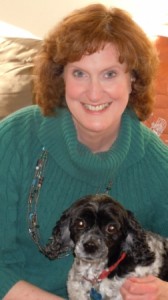An interfaith day of remembrance will bring Salt Lake City’s diverse religious community together on Jan. 27.
The event is the third annual night to honor victims, known as “downwinders,” who were affected by nuclear radiation testing in the 1950s.

The event will primarily be a prayer led by clergy from the local Hindu, United Church of Christ and Methodist communities.
The prayer will be followed by time for attendees, many of whom could be children and grandchildren of original downwinders, to share stories and reflections about the tragedy.
From 1951 to 1962, a U.S. Department of Energy reservation, known as the Nevada Test site, was used for 100 above-ground and surface-level nuclear tests. The term “downwinders” refers to the individuals and communities exposed to the radiation and nuclear fallout from those tests.
Many downwinders suffered from adverse health effects including cancer, thyroid disease and even death as a result of their exposure to radiation.
Jean Schwien, senior pastor at Christ United Methodist Church in Salt Lake City, said the event will demonstrate the impact various faiths can have when they come together.
“The testing certainly affected people from all different backgrounds … radiation doesn’t discriminate,” Schwien said. “The day of remembrance reflects the unity that world faiths can have regarding issues of world peace. It’s about a community of all faiths coming together to ensure this doesn’t happen again.”
Colleen Scott, media chair for the Salt Lake Interfaith Roundtable, said it’s important for the community to come together regularly through faith.
“Events like this open up interfaith dialogue within the community, and it helps emphasize what a diverse community we live in,” Scott said. “One of the best ways we can reach out to others is through their faith — it can be a real positive force for good.”
At the end of the meeting, attendees are invited to sign letters to Congress regarding the Comprehensive Nuclear-Test-Ban Treaty. The treaty was supported by President Eisenhower during his presidency but has failed repeatedly to be ratified by Congress due to partisanship over the issue.
Deb Sawyer, coordinator of the Utah Campaign to Abolish Nuclear Weapons, said writing letters to Congress during the event will help eliminate the threat of nuclear testing in the future.
“Writing these letters will help the Senate understand that the people want them to stop dragging their heels on the issue and move forward,” Sawyer said.
The service will be held on Monday, Jan. 27, at 7 p.m. at the Christ United Methodist Church in Salt Lake City.




